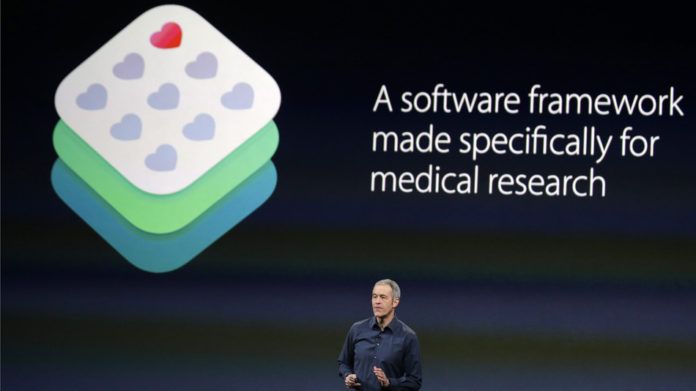Stanford launches its ResearchKit-based app overseas to learn more about heart disease

Stanford University’s ResearchKit-based health app is headed overseas as a part of an effort to help researchers learn more about heart disease on a global scale.
Five months after Apple announced ResearchKit, Stanford’s MyHeart Counts app launched in the UK and Hong Kong on Thursday, marking the first time iPhone users in these countries can participate in a medical study through the tech giant’s platform.

“We wanted to start with countries where we had existing ties, then expand to other countries as we work though the appropriate laws and regulations,” Michael V. McConnell, professor of medicine at Stanford and MyHeart Counts researcher, told Mashable.
“Heart disease is a global problem, and growing more outside the US, so we want to study contributors to heart health in every country, as there will be geographic and cultural differences, plus the need to educate people everywhere about heart health,” he added.
Apple’s ResearchKit platform, which collects data from patients via the iPhone, allows researchers like the ones at Stanford to have access to a much larger pool of medical study participants. Rather than posting local flyers on campus or online to encourage people with certain conditions (for example, diabetes or Parkinson’s disease) to participant in studies and surveys, medical centers can use the tool to learn more about these conditions (and treatments) with anyone who has an iPhone and wants to opt in.
Stanford’s app specifically collects data about physical activity and cardiac risk factors related to heart disease. After it launched in March, it gained significant buzz as an early ResearchKit adopter and has since attracted more than 41,000 iPhone participants.
“People have been excited to contribute to heart research when we make it easy to participate,” McConnell said. “Every type of research study is different, so this may not apply to all future research, but for studying population health and the impact of real-world, daily activities, a mobile research platform has many advantages.”
The MyHeart Counts app asks participants once every three months to monitor one week’s worth of their physical activity and also complete a 6-minute walk fitness test. The latest version of the app also includes feedback on users’ behaviors and risks.
“We’re still analyzing the initial data, but we’re seeing interesting differences in physical activity and sleep patterns and accumulated the largest dataset on fitness assessment using the 6-minute walk test,” McConnell.
While the initial phase of the MyHeart Counts study is to look broadly at real-world data on physical activity, fitness and heart health to provide personalized information to participants, the next phase will be to study motivational tools for users.
ResearchKit was widely adopted right out of the gate, with more than 60,000 iPhone users enrolled in the first few weeks of its launch. Soon after, Apple opened the framework to anyone who wants to integrate ResearchKit into their own apps and studies.
Stanford is the first ResearchKit-based app to launch overseas, though Apple confirmed to Mashable other medical researchers are looking to do the same soon.
Have something to add to this story? Share it in the comments.
